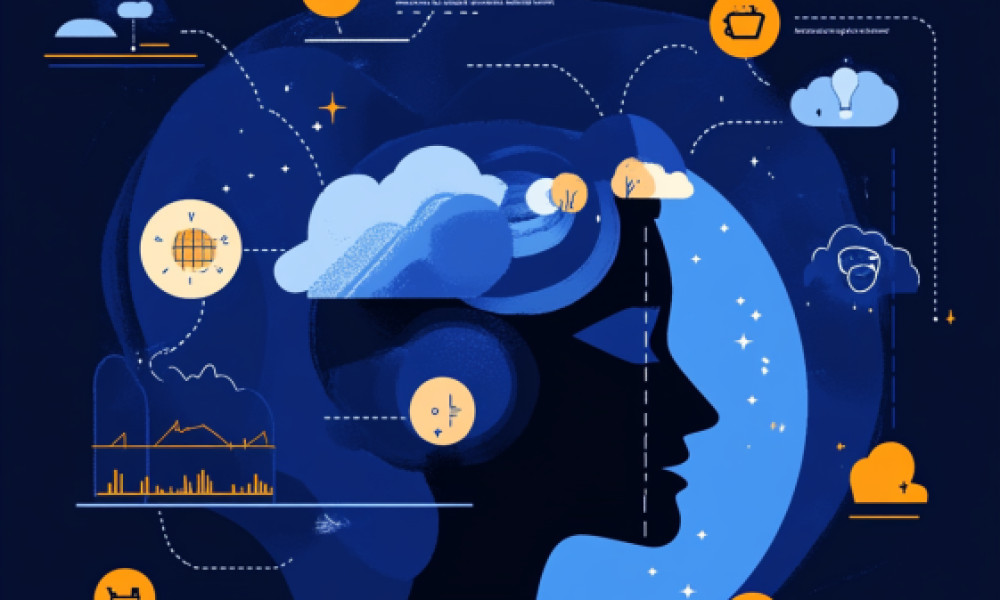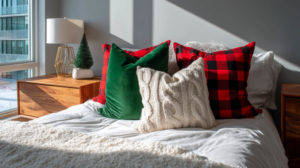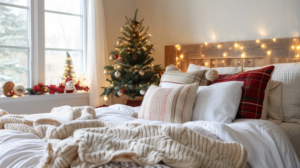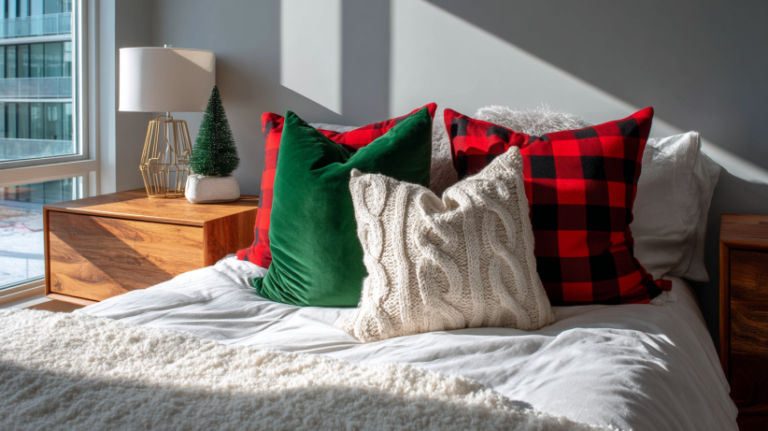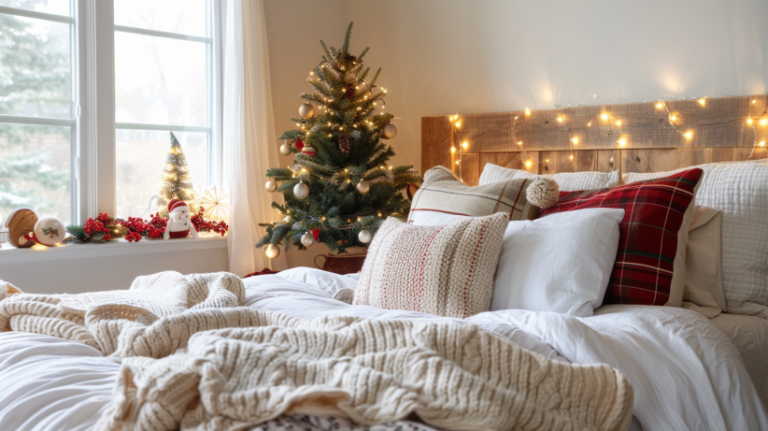Sleep Science Tips to Fall Asleep Faster and Refreshed
Looking for a research-backed plan you can apply tonight? Sleep science shows that small habit shifts—timed light exposure, cycle-aware bedtimes, and a cooler room—help you fall asleep faster, improve deep sleep, and wake up refreshed. Use the steps below (with quick-start checklists) to lock in better sleep this week.
How Sleep Science and Technology Improve Rest
- Plan sleep in 90-minute cycles and wake at the end of a cycle for easier mornings.
- Morning sunlight and a screen-light curfew keep your circadian rhythm in sync.
- Dim lights before bed; consider low-dose melatonin if needed.
- Cool bedroom (60–67°F) and supportive bedding boost deep sleep.
- Short, timed power naps lift energy without disrupting nighttime sleep.
- Protect 7–9 hours: better immunity, focus, and productivity follow.
Introduction
Sleep science has proven that sleep is more than just rest—it’s an essential biological process that allows your body and brain to repair, regenerate, and function at peak performance. If you struggle to fall asleep, wake up groggy, or feel drained throughout the day, the answer may lie in scientifically-backed sleep techniques.
This guide reveals 10 sleep science-proven strategies to help you fall asleep faster, improve sleep quality, and wake up feeling refreshed. Let’s dive in!
1. Understand Your Sleep Cycles (The Foundation of Restful Sleep)
Your sleep follows 90-minute cycles, alternating between light sleep, deep sleep, and REM sleep. Each stage plays a critical role in restoring energy and cognitive function.
How to Work With Your Sleep Cycles:
Start by timing bedtime and wake-up to align with 90-minute blocks—this reduces morning grogginess.
✅ Plan your sleep in 90-minute intervals (e.g., 6 hours, 7.5 hours, or 9 hours).
✅ Avoid hitting snooze, as interrupted cycles lead to grogginess.
✅ Use a sleep tracker to monitor your sleep stages.
✅ Adjust your wake-up time by 15-minute increments until you find your optimal cycle.
💤 Read More: Sleep Like a Pro: 10 Proven Hacks for the Deepest Sleep of Your Life
2. Regulate Your Circadian Rhythm (Your Natural Sleep-Wake Cycle)
Your circadian rhythm is your internal body clock, regulating when you feel sleepy and alert. Disruptions can lead to insomnia, fatigue, and difficulty focusing.
How to Keep It in Sync:
Anchor your rhythm with light and consistent timing—your brain thrives on predictable cues.
✅ Expose yourself to morning sunlight to trigger wakefulness.
✅ Avoid blue light from screens at night.
✅ Stick to a consistent sleep schedule—even on weekends.
✅ Avoid eating too late, as it can delay melatonin production.
🌞 Read More: How Morning Sunlight Resets Your Circadian Rhythm for Better Sleep
3. The Role of Melatonin (Your Natural Sleep Hormone)
Melatonin is your body’s natural sleep hormone, but lifestyle habits can interfere with its production.
How to Boost Melatonin Naturally:
Create a low-light evening runway so your brain can release melatonin on schedule.
✅ Dim lights 1-2 hours before bed to support melatonin release.
✅ Avoid caffeine, alcohol, and nicotine late in the day.
✅ Take a low-dose melatonin supplement (0.5-3mg) if needed.
✅ Create a relaxing bedtime routine with meditation or reading.
🌙 Read More: Melatonin & Sleep: How Your Hormones Affect Sleep Quality
4. Deep Sleep Science: Why It’s Essential for Recovery
Deep sleep is the most restorative stage of sleep, helping with muscle recovery, immunity, and memory consolidation.
How to Get More Deep Sleep:
Cool, dark, and quiet environments cue the brain for slow-wave sleep.
✅ Keep your bedroom cool (60-67°F) for optimal rest.
✅ Avoid stimulants like caffeine and sugar at least 6 hours before bed.
✅ Try white noise or binaural beats to promote slow-wave sleep.
✅ Invest in a comfortable mattress and pillow for better spinal alignment.
🏡 Read More: Tired of Tossing & Turning? Try These 10 Genius Sleep Fixes!

5. Sleep & Brain Function (How Sleep Affects Learning & Memory)
A well-rested brain is faster, sharper, and more creative. Sleep is essential for memory consolidation and cognitive performance.
Ways to Boost Brain Function Through Sleep:
Prioritize enough sleep and strategic mini-rests to lock in learning.
✅ Get at least 7 hours of sleep per night for optimal performance.
✅ Take short naps (20 minutes) to improve focus and retention.
✅ Reduce stress levels before bed to prevent restless thinking.
✅ Avoid chronic sleep deprivation, as it slows problem-solving abilities.
🧠 Read More: How Sleep Affects Mental Health (And Vice Versa)
6. How Sleep Affects Your Immune System (The Link Between Sleep & Health)
Lack of sleep weakens immunity, making you more susceptible to illness.
How to Strengthen Your Immune System With Sleep:
Consistency is a powerful immune habit—protect your sleep window nightly.
✅ Aim for 7-9 hours of sleep per night.
✅ Stick to a consistent sleep schedule to regulate immune function.
✅ Reduce chronic stress, as it suppresses immune response.
🌿 Read More: The Impact of Sleep on Your Immune System
7. The Power of Naps (Boosting Energy & Performance Mid-Day)
Strategic napping can increase alertness and productivity without making you groggy.
Best Nap Strategies:
Use short, early-day naps to recharge without hurting nighttime sleep.
✅ Power naps (10-20 minutes) for a quick energy boost.
✅ REM naps (60-90 minutes) for deep cognitive restoration.
✅ Avoid napping too late, as it may interfere with nighttime sleep.
⏳ Read More: Nap Like a Pro: The Science of Power Naps
8. How Sleep Affects Productivity (The Link Between Sleep & Success)
Lack of sleep reduces productivity, focus, and decision-making.
How to Sleep Smarter for Peak Productivity:
Protect a firm sleep boundary and use focused work sprints to perform at your best.
✅ Prioritize quality sleep over working late hours.
✅ Take structured breaks to maintain mental clarity.
✅ Use the Pomodoro Technique (25-minute focus sessions + 5-minute breaks).
✅ Set an evening wind-down routine to separate work from sleep.
🚀 Read More: How Sleep Affects Productivity & Focus

FAQ
Quick answers to common questions about sleep science and better rest.
- What’s the ideal bedroom temperature for deep sleep?
- Most sleepers do best between 60–67°F; cooler temps support slow‑wave sleep.
- How long before bed should I avoid screens?
- Aim for a 60–90 minute screen curfew or use blue‑light filters and dim warm lighting.
- Is melatonin safe to take nightly?
- Low doses (0.5–3 mg) can help short-term. Always consult your healthcare provider for ongoing use.
- Do naps ruin nighttime sleep?
- Short 10–20 minute naps, taken early afternoon, typically improve energy without hurting nighttime sleep.
- What if I wake up at 3 a.m.?
- Keep lights low, avoid clocks, and try a calm activity (reading, breathing) until sleep pressure returns.
Final Thoughts: Unlock the Power of Science-Backed Sleep!
Sleep isn’t just about resting—it’s a science-backed process that affects your health, energy, and mental clarity.
By following these proven sleep science techniques, you can fall asleep faster, wake up energized, and perform at your best.
✨ Start optimizing your sleep today and feel the difference tomorrow! 😴
Related reading from Cozy Bed Quarters
- Sleep Smarter: 21 Proven Ways to Improve Your Sleep Quality
- The Best Sleep Hacks for Deep Sleep
- How Your Sleep Environment Affects Sleep Quality
Other reading we found popular

